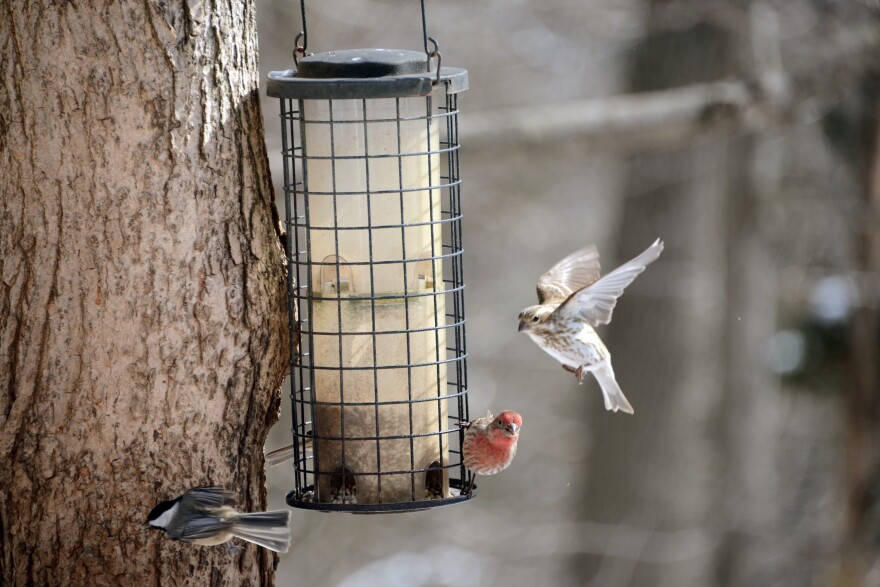A salmonella outbreak has songbirds dropping dead near backyard bird feeders in at least eight states across the country, including Kentucky, according to the U.S. Centers for Disease Control and Prevention.
At least one person has fallen ill in the commonwealth and another 18 cases have been confirmed in the U.S., according to the CDC.
The Kentucky Department of Fish and Wildlife Resources began receiving reports in early January. It has confirmed cases of salmonella in songbirds found in Bullitt, Calloway and Washington counties.
“It is very possible it is across the state,” said state wildlife veterinarian Dr. Christine Casey. “If you see sick or dying birds at your feeder, take your feeders down and clean them with a 10% bleach solution. Wait two weeks before you put them up.”
Regularly cleaning bird feeders, dumping the contaminated seed if there are sick birds around, and washing your hands afterwards helps to minimize the risk of infection.
When visibly sick, the birds can appear lethargic with puffed feathers. The majority of the cases have been found in pine siskins — a yellow-tinged songbird in the finch family — though Casey also confirmed cases in goldfinches, and it can affect any number of songbirds.
Salmonella outbreaks are common in backyard feeders; birds can carry the germs even while looking healthy. They spread the disease through fecal transmission — particularly on feeders, where birds tend to congregate.
Those germs can infect other birds, pets and people. Transmission occurs when people touch their mouths with unwashed hands after touching wild birds, bird feeders or baths, according to the CDC.
Casey said she thinks it’s likely more people have noticed this year’s outbreak because so many more people are working from home and watching their bird feeders due to the pandemic.
“This year seems to have a higher case frequency but I do think that has to do with more people being home,” Casey said.
The outbreaks among songbirds tend to happen more frequently in winter, when birds more heavily rely on bird feeders as a food source.
Casey said it’s likely the outbreak will slow as more food becomes available with the onset of spring, and birds practice more social distancing.


